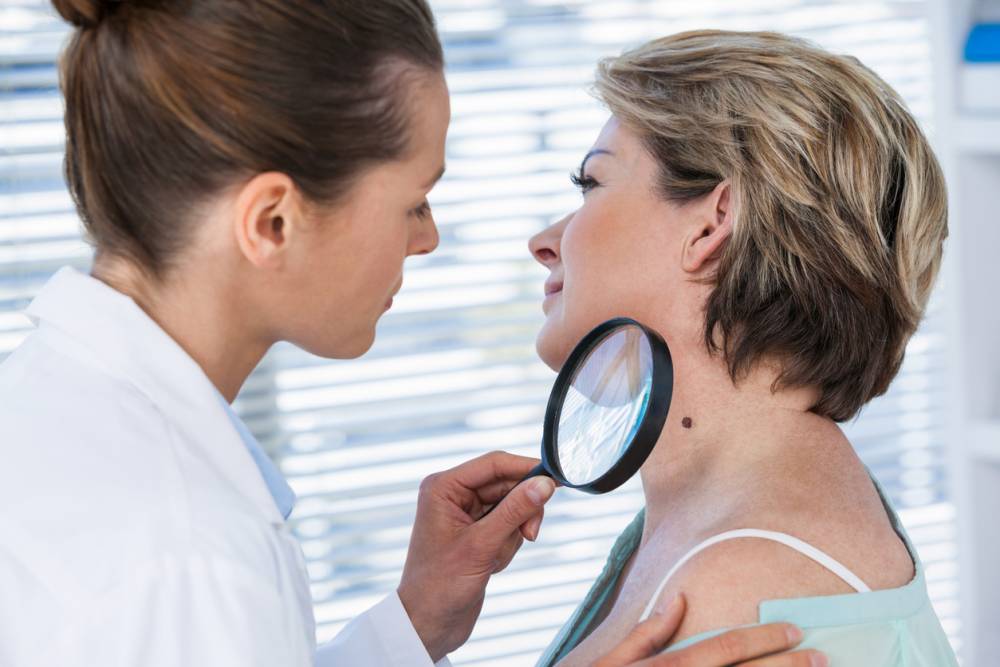Many of us can relate to these scenarios: It’s the morning of a big presentation or a special event, and all of a sudden, bumps or pimples appear on your face; add a glass of wine later in the day and your cheeks take on a bright red color, beyond what could be considered a rosy glow.
These occurrences can be stressful for anyone. But for an estimated 16 million Americans, they are more than just occasional beauty concerns – these may be symptoms of rosacea, a common, but often misunderstood, inflammatory skin condition that can have a deep emotional impact. To arm consumers with the facts about rosacea and empower them to take action, Galderma Laboratories, L.P., and the National Rosacea Society (NRS) bring you an educational campaign called Break Up with Your Makeup.
“Many patients will initially come to my office thinking that they have acne or another skin condition, which they’ve been incorrectly treating with over-the-counter remedies and attempting to conceal with heavy makeup,” said Dr. Doris Day, nationally recognized dermatologist, campaign spokesperson and Galderma consultant. “Once I tell them that they have rosacea and that harsh cleansers and some makeups can in fact aggravate their symptoms, they’re often surprised.”
A national survey of over 500 rosacea patients and 300 dermatologists, conducted in partnership between the NRS and Galderma, revealed some gaps in patient awareness of rosacea symptoms and triggers and concerns from dermatologists treating the condition. To help people with rosacea get more control over their condition, Dr. Doris Day shared the top three things she wants those who have rosacea, or think they might have it, to know:
- Deciphering the Symptoms. With nearly half of rosacea patients (49%) mistaking their rosacea for acne prior to diagnosis, it’s no wonder that 40% of dermatologists believe that their patients have put off visiting them because they thought their symptoms could be controlled with acne treatments. However, research has shown that there is no connection between acne and rosacea and the two disorders require different treatment. As a general rule for distinguishing acne and rosacea, Dr. Day suggests keeping an eye out for blackheads and persistent facial redness, as the first only occurs in acne, while the latter is specific to rosacea. But only a dermatologist can make a proper diagnosis, so be sure to schedule your appointment.
- What’s in a Trigger? When it comes to having a clear understanding of their condition, many dermatologists notice knowledge gaps in their rosacea patients; almost half (47%) worry that their patients simply don’t know enough about what can trigger their symptoms. And their concerns may not be unfounded: 60% of rosacea patients don’t believe it’s possible to prevent symptoms by making changes to their diet or lifestyle, even though things like cheese, chocolate, red wine, spicy foods and stress can all act as triggers. Dr. Day suggests patient keep a rosacea diary for a few days to track what may trigger flare-ups.
- Stop Concealing, Start Treating! 41% of physicians fear that their patients simply cover up their rosacea instead of treating it; and it’s a logical concern given that 77 percent of makeup-wearing patients say they wear more makeup now than before their diagnosis. However it’s important for patients to visit their dermatologist for proper diagnosis and treatment if symptoms persist. For example, a dermatologist can prescribe medication that, along with healthy skincare and diet/lifestyle management, can help you keep your symptoms under control. Galderma offers a comprehensive portfolio of rosacea solutions that address a variety of frustrating symptoms. Galderma currently markets topical Mirvaso® Gel for the persistent facial redness associated with rosacea; systemic Oracea® Capsules, the only oral papulopustular rosacea treatment approved by the FDA; and Soolantra® Cream, a once-daily, antibiotic-free product indicated for the treatment of inflammatory lesions, or bumps and pimples, of rosacea.
If you suspect you may have rosacea, take action today, and visit your dermatologist to discuss a healthy skincare regimen that’s right for you, which may include prescription treatment. – BPT







